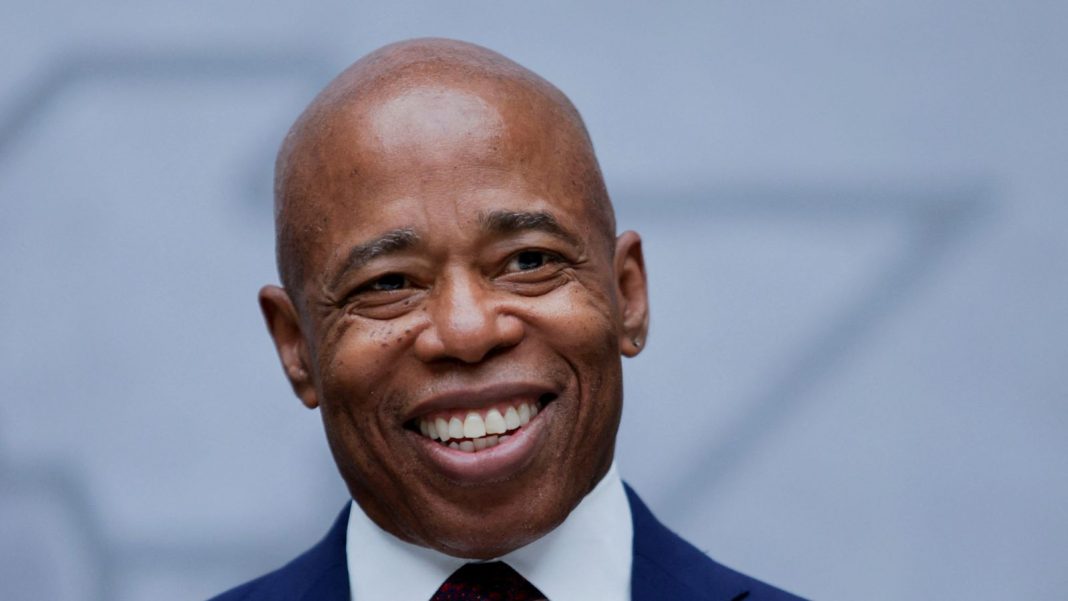New York’s mayor has admitted using audio deepfakes to call residents in languages he doesn’t speak.
Eric Adams has been heard speaking Spanish and Mandarin thanks to the technology, which he said was a way to reach more people.
Speaking at a news briefing (in English), the Democrat said the “robocalls” were used to promote local events like recruitment fairs and concerts.
The self-described “techie” insisted he had enjoyed positive feedback from residents, saying some he’d spoken to were “excited” to hear their mayor in their own language.
“We are becoming more welcoming by using technology to speak a multitude of languages,” he added.
“To all, all I can say is ni hao (Mandarin for hello),” is how he cheekily signed off the conference, having been asked whether the phone calls were potentially misleading people.
Local news outlet The City reports more than four million people have been reached by the calls so far, including thousands in Spanish and hundreds in Yiddish, Mandarin, and Cantonese.
They are generated using voice tech firm ElevenLabs, which was left embarrassed earlier this year when its software was used to generate celebrity voices reading inappropriate statements.
Spotify is experimenting with similar tools to translate podcasts into other languages.
‘Deeply unethical’
Following the news conference, the mayor was criticised by campaigners who described the calls as “unethical”, as they don’t include any clarification that the voice is artificially generated.
Albert Fox Cahn, from the Surveillance Technology Oversight Project, said it was a “creepy vanity project”.
“The mayor is making deep fakes of himself,” he said.
“This is deeply unethical, especially on the taxpayer’s dime. Using AI to convince New Yorkers that he speaks languages that he doesn’t is deeply Orwellian.”
Read more:
Twelve AI problems that ‘must be addressed’
Tom Hanks warns fans not to fall for deepfake ad
Please use Chrome browser for a more accessible video player

1:51
Deepfake audio of Starmer released
Mayor won’t ‘run away’ from AI despite risks
The potential threat posed to democracy by the technology has recently been underlined by fake clips targeting UK Labour leader Sir Keir Starmer.
Mr Adams acknowledged concerns around such generative AI, including those used to create images and videos, but said he would not be “running away” from the tools.
He also used the news briefing to tout a new chatbot service to help small business owners.
It’s powered by Microsoft technology with an interface similar to OpenAI’s ChatGPT, and allows users to ask questions about applying for local programmes and advice on how to run a company.







